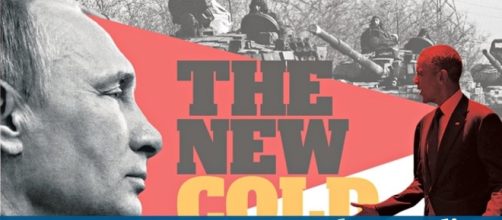While the United States waited to hear President Donald Trump’s first speech in Congress , European newspapers gave the reactions to the Administration’s proposal for a $54 billion dollar increase to military spending shows that every action by a superpower is met with a reaction by the opposing country.
Replies from Moscow
As reported by major Italian newspaper Repubblica and other European newspapers, the Russian reaction to the announcement was not welcoming.
According to Russian Deputy Foreign Minister Serghej Rjabkov relations between Russia and the United States are at their lowest ebb since The Cold War.
Not only did he refer to the proposals of spending increases, but also to the reports that Congress was opposed to Donald Trump’s proposals to ease economic sanctions against Russia in place since its annexation of Crimea from the Ukraine. He also stated that The Russian government was closely observing anti-Russian behaviour on the part of the United States.
In addition, Leonid Slutskij Chairman of the Foreign Affairs Committee of the Duma, the Russian Parliament, also stated that while there have been no actions against the START-3 Treaty so far, Russia will act accordingly if the United States decides to break the arms limits set in the treaty.
Military spending
In considering the proposals by the United States, it will be useful to consider President Trump’s proposal compared to Russian military spending.
According to theintercept.com, the proposed $54 billion dollar increase is equal to 80% of the entire Russian military budget for 2015 and equal to the entire budget for the United Kingdom. The United States has effectively been on a wartime footing since 2001 and thus has by far the world’s biggest military budget.
Interestingly, the next biggest spender is not Russia, but China, which has decided to expand its armed forces and has also built artificial islands in the South China Sea which is worrying America’s allies in Asia.
Arms Race
Although there has not yet been an official comment from the Kremlin, the comments by the two Russian politicians already hint at the possibility of a new Cold War and international arms race if the Congress agrees to the Trump Administration’s proposals.
This situation may lead to two clashes for the Oval Office. The first will undoubtedly be with the Republican controlled Congress and Senate opposed to big government spending, particularly in light of other major expenditure items such as the proposed wall on the border with Mexico and the eventual infrastructure proposals mentioned in President Trump’s speech to Congress last night.
The other clash would of course be with Russia itself with a new arms race together with other international consequences that would follow as a result. This may well lead to even closer military ties between Russia and China, particularly if the United States acts against the apparent Chinese expansion in the South China Sea, such as the presence of an American naval flotilla with the aircraft carrier USS Carl Vinson recently.
Action – reaction
These developments should act as a warning to President Trump and his new Secretary of State Rex Tillerson that every action by the United States will cause a reaction by not only the other superpowers, but also to any group that sees the country as its enemy.
This may go from overt and covert activities by the other superpowers, such as we saw during the recent presidential campaign, to terrorist attacks against American targets at home and abroad by groups such as ISIS.
International politics is insidious and particularly with countries such as Russia and China, so the Trump Administration would do well not to act without considering all the consequences of its actions. As we saw with the first commando raid in Yemen which is now subject to military investigation, overwhelming military might alone does not guarantee success.
The greatest achievements are not on the battlefield, but in diplomacy.

